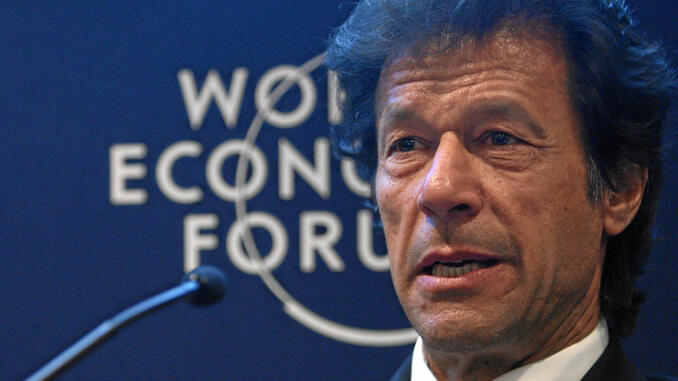
Imran Khan has been elected and sworn in as Pakistan’s new leader. His election on July 25, represents only the second time in Pakistan’s history there has been a peaceful transfer from one leader to another although there were many reports of the military putting its fingers on the scale on Khan’s behalf. Despite the controversy, Khan and his party, the Pakistan Tehreek-e-Insaf (PTI), will dominate the legislature and it brings hopes to its people that Pakistan can reshape its image. One issue of immediate concern, and one that Khan will have to move quickly on, is Pakistan’s finances.
Khan has come to office as Pakistan faces a balance-of-payments crises as the country’s currency slides in evaluation. Pakistan imports three-quarters of its energy needs and even with that the foreign-exchange reserves are down to $9 billion, or to just two months’ import cover. An International Monetary Fund (IMF) bailout appears to be inevitable. “The interest that we have to pay on our debt has reached a level that we have to take on more debt just to repay our obligations,” Khan said in a televised speech after taking office.
Pakistan’s balance-of-payments crises has been caused in part by its debt burden to China through the China-Pakistan Economic Corridor (CPEC) project. China’s loans to Pakistan for the project have saddled Pakistan with unstable debt. With the possibility of an IMF bailout looming, some do not want to see that money go to China. U.S. Secretary of State Mike Pompeo has said that the U.S. would block any IMF loans that go to pay off Pakistani debt to China. “Make no mistake. We will be watching what the IMF does. There’s no rationale for IMF tax dollars, and associated with that American dollars that are part of the IMF funding, for those to go to bail out Chinese bondholders or China itself,” Pompeo said in a television interview. Many are accusing China of doing to Pakistan what China did to Sri Lanka where Chinese debt burden and economic practices forced Sri Lanka to sell the Hambantota port to the Chinese for 99 years. Some refer to it as “Chinese Colonialism.”
During the campaign, Imran Khan made several promises to reform Pakistan’s economy. He pledged to crack down on corruption and has proposed a “100 Day Plan” which includes several economic initiatives such as tax reform in a country where less than one percent of its population pays taxes. He and the PTI promise, despite China’s predatory economic deals, to also keep working with China on the CPEC and make it a “revolutionary” project. First, however, Khan will have to bring debt payments under control and stabilize the country’s currency. And as with anything with the Pakistan economy, Imran Khan has his work cut out for him.
